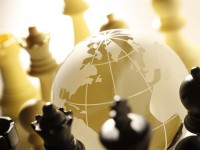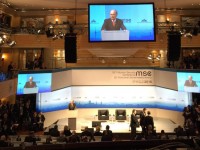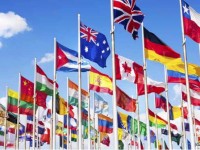Jin Liangxiang, Senior Research Fellow, Shanghai Institute of Int'l Studies
Apr 12, 2019
In recent years, the United States has failed to reshape world affairs to its liking as it once could. From its inability to oust Bashar Assad from Syria, to its unilateral revocation of the Iran nuclear deal, to its unsuccessful pressuring of allies to block Huawei, we see an America that has lost its touch on the global stage.
Liu Cun, G20 Observer
Apr 05, 2016
China will use its presidency to focus on growth and guide international economic cooperation, and promote the new foreign policy concepts Beijing has adopted in recent years such as “win-win cooperation”, “a new model of major-country relationship” and “a global community of shared future” – all aimed at creating a better future for the world.

Cui Liru, Former President, China Institutes of Contemporary International Relations
Mar 29, 2016
The process of globalization has dramatically transformed state-to-state relations at regional levels: As bonds of community of interest are being formulated on greater scales, cooperation will become essential for coexistence in the future. China-US cooperation in the construction of regional order for the Asia-Pacific is not only in their fundamental interests, but also the two major countries’ historical responsibility for the area.

Gudrun Wacker, Senior Researcher, German Institute for International and Security Affairs
Feb 19, 2016
Chinese initiatives like “One Belt, One Road” are intentionally open and flexible; no uniform rules or norms are set from the beginning. One of the major challenges for the EU and European countries in the cooperation with China stems from this openness or vagueness, and from doubts about rules that might be applied differently in global and regional contexts.
Chen Jimin, Guest Researcher, Center for Peace and Development Studies, China Association for International Friendly Contact
Feb 17, 2016
Despite the president’s focus on the American future, his calls to reform the political, economic and social system domestically and to build a strong network of allies and partners to address potential threats internationally could easily be thwarted by partisan politics.

Meicen Sun, Ph.D. candidate, Massachusetts Institute of Technology
Feb 15, 2016
Many “realist” scholars make predictions about China based on what the Soviet Union did during the Cold War, which assumes the two cases are similar in more ways than are warranted. An enormous amount of cultural capital remains untapped for its potential in collective identity construction. Success in constructing a new Asian identity will not only strengthen cooperation in the short run, but also weaken the appeal of military contestation over time.
Cui Liru, Former President, China Institutes of Contemporary International Relations
Jan 20, 2016
Global developments have led China to take a more proactive approach in dealing with international issues in 2015 that saw China transition to practicing “major-country” diplomacy. As U.S.-China relations are turning more contentious and competitive, the two countries must seek convergence of common interests and avoid conflict and confrontation.
Wang Yusheng, Executive Director, China Foundation for Int'l Studies
Jan 18, 2016
As the new year dawns, the U.S. still struggles with the effort to shape the world with itself as the center. Resisting the opportunity to build a more positive relationship with China, underpinned by stronger and closer cooperation, keeps Washington trapped in the past, while many of its allies, including Britain, Europe, Canada and Australia, have embraced a multipolar world that is no threat to the U.S., except to its national ego.
Wu Zurong, Research Fellow, China Foundation for Int'l Studies
Jan 07, 2016
In a new world order, in the interest of the US and the whole world, the Washington has to make continued efforts to work with others to deal with the complicated world challenges, otherwise the successes and progress already made – from Iran to Paris and into the future -- could be forfeited.

Yin Chengde, Research Fellow, China Foundation for International Studies
Dec 03, 2015
Competing visions, one with the UN as its spiritual center and the US counterview with itself at the heart of a unipolar world, are vying to shape the world’s future. The US remains the sole superpower in the world, but its attempt to remain the driving force in global governance is doomed to fail in a changing, multipolar world.